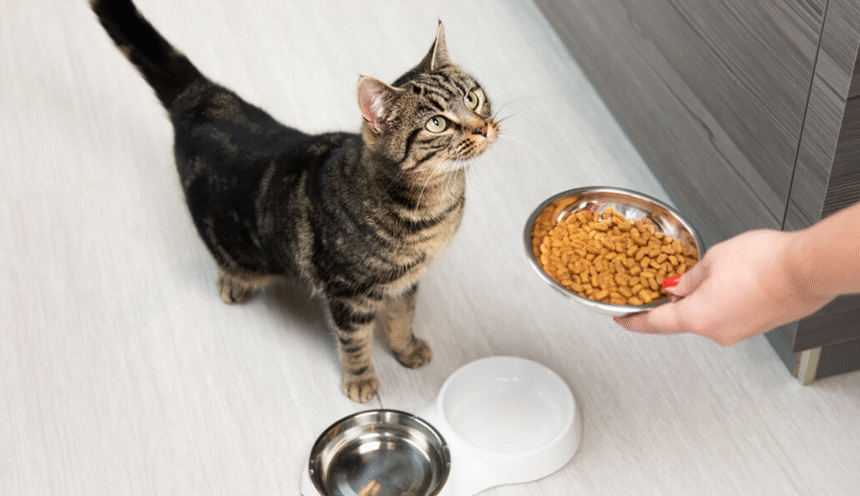Choosing the proper diet for your cat is important. Cats have different dietary needs than dogs and other pets. As a cat owner, knowing these needs can help your furry friend live a happier and healthier life. With many options available, the choices may seem overwhelming, but with some guidance, you can create a nutritious feeding routine for your cat.
Every cat is unique, with its own health needs, activity levels, and preferences. Factors like age, weight, and grooming habits affect what food is best for your cat. By paying attention to these factors, you can ensure your cat gets the right balance of nutrients.
Nutritional Basics
Cats are obligate carnivores, meaning they need animal-based proteins for good health. Their diet should focus on high-quality protein sources that help maintain a healthy weight and support lean muscle. Fats are also important for energy and nutrient absorption. While carbohydrates can be included in small amounts, they shouldn’t be the main part of the diet.
A good diet must include vitamins and minerals as well. Taurine, an essential amino acid found in animal products, is key to heart health, vision, and reproductive functions in cats. Also, vitamins A, D, E, and various B vitamins help keep your cat healthy. Always think about your cat’s life stage, whether it’s a growing kitten or a senior cat.
Quality Cat Food
When choosing cat food, quality is crucial. Look for food that lists real meat as the first ingredient. This ensures your cat gets the protein it needs. Many brands now focus on natural ingredients without fillers, artificial preservatives, or by-products, making it easier to provide balanced and healthy meals.
One well-reviewed option is Acana cat food. Known for high-quality ingredients, Acana offers a variety of recipes packed with protein, fruits, and vegetables. Their focus on fresh, regional ingredients makes each meal both nutritious and tasty. Acana also provides options for all life stages, so you can find the right food for your cat, no matter its age or health needs.
Wet vs. Dry Food
Wet and dry cat food both have their benefits. A mix of both can give your cat the best of both worlds. Wet food helps keep your cat hydrated and is good for cats that don’t drink enough water. It usually has more protein and fewer carbs than dry food.
Dry food helps keep teeth healthy by reducing plaque. It is also easy to use and helps with portion control. When choosing food, think about your cat’s preferences and health needs. If you are unsure, ask your veterinarian for advice on how to use both types.
Portion Control
Controlling how much your cat eats is important for their weight and to prevent obesity. Cats can overeat if allowed, so follow the feeding guidelines on the packaging. Different cats need different amounts of food; active cats need more calories than lazy ones.
Feeding your cat two or more meals a day can help with hunger and make them feel satisfied. This schedule mimics natural hunting habits, allowing them to enjoy their food while helping with weight control.
Human Foods
Many cat owners wonder if sharing human food is safe. Some human foods can be good for cats, while others can be harmful. Cooked meats, small amounts of plain fish, and well-cooked vegetables can be good treats sometimes. Avoid giving your cat onions, garlic, chocolate, or too much dairy, as these can be dangerous.
Always introduce new foods slowly and in small amounts. Watch how your cat reacts to new food to avoid issues. Stick with commercial cat food as the main part of their diet, using human foods as occasional treats.
Regular Veterinary Check-ups
Good food is just one part of your cat’s health. Regular visits to the vet help track your cat’s health and advise on their dietary needs. A vet can suggest changes as your cat gets older and recommend food brands based on any health issues.
Getting expert advice on your cat’s diet helps ensure they get balanced nutrition and stay healthy. If your cat has specific health problems, the vet might suggest special diets to meet those needs.
Feeding your cat doesn’t have to be complicated. Focus on good ingredients, understand their nutritional needs, and work with your veterinarian. Remember, a balanced diet is key to improving your cat’s quality of life and keeping them happy and healthy.














